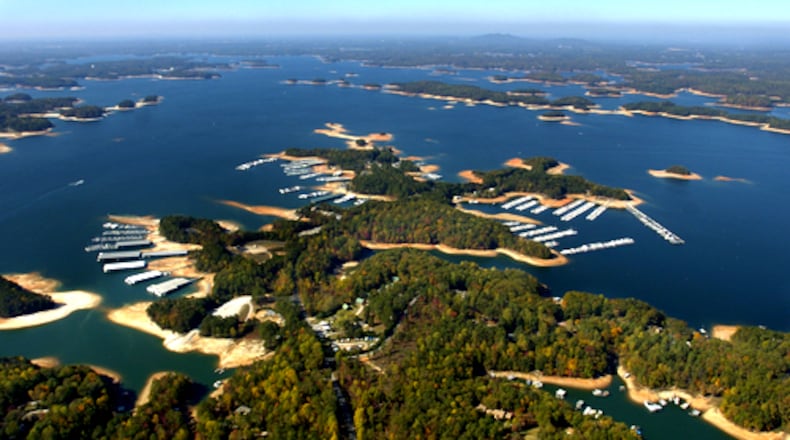Georgia officials are pleading with metro Atlanta residents to conserve water heading into the state's prime summer months, saying they need to be mindful of their usage as the area faces a continuing stubborn drought and Atlanta's warmest April on record.
Twelve counties remain in a Level 2 drought: Cobb, Coweta, DeKalb, Douglas, Forsyth, Fulton, Gwinnett, Habersham, Hall, Lumpkin, Paulding and White.
Lake Lanier, which all 12 of those counties depend on as part of their water supply, also remains eight feet below its full water level.
“Coupled with the fact that it is not unusual during a drought for Lanier to drop six feet or more over the summer, it is critical that metro Atlantans follow a Level 2 drought response, which allows reasonable outdoor water use while still saving water,” state Environmental Protection Division Director Richard Dunn said.
Here’s what you need to know:
- Residents under Level 2 restrictions have to follow outdoor watering schedules that allow landscape watering up to two days a week, determined by odd and even-numbered addresses. Even-numbered addresses and properties without numbered addresses may water on Wednesday and Saturday before 10 a.m. and after 4 p.m. Odd-numbered addresses may water Thursday and Sunday before 10 a.m. and after 4 p.m.
- Other allowable outdoor watering includes for new and replanted plants, seed or turf any time of day for 30 days after planting; personal food gardens any time of day; and drip irrigation, soaker hoses, handheld containers or hand-watering with a hose with automatic cutoff any time of day.
- What's not allowed: Washing hard surfaces such as streets and sidewalks; water for ornamental purposes such as fountains; non-commercial washing of vehicles; non-commercial pressure washing; and fundraising car washes.
- While not required, conservation suggestions also include turning off the water while shaving or brushing teeth to save at least 100 gallons a week.
- Fix leaky faucets as soon as you notice them. A leak of 60 drips a minute wastes 192 gallons a month.
More water conservation information is available from the state at http://epd.georgia.gov/water-conservation.
About the Author
Keep Reading
The Latest
Featured



